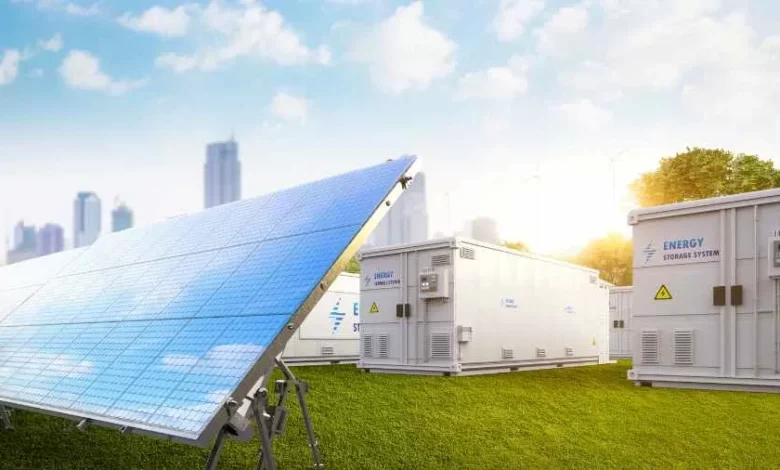Why Every Business Needs A Robust BESS System

As the global energy landscape evolves, so does the need for smarter, more flexible, and more resilient power infrastructure. At the heart of this transformation lies a technology revolutionising the way we store and manage electricity: the Battery Energy Storage System (BESS).
From ensuring uninterrupted power to integrating renewables at scale, a BESS system is no longer a luxury; it’s a strategic necessity for commercial and industrial sectors navigating the energy transition.
In this article, we’ll cover:
- What a BESS is and how it works
- Why businesses are rapidly adopting BESS technology
- A step-by-step guide to selecting and deploying the right system
- How LZY Energy is pioneering this transformation
- Key use cases across industries
What Is a BESS System?
A Battery Energy Storage System (BESS) is a technology that stores electrical energy for later use. Unlike traditional generators, BESS units are quiet, emission-free, and fully digital.
A typical BESS system includes:
- Battery modules (often lithium iron phosphate)
- Battery Management System (BMS) for safety and control
- An inverter to convert between AC and DC power
- Thermal management for optimal temperature
- Energy Management Software for Smart Operation
With the rise of renewable energy sources like solar and wind, which are intermittent by nature, BESS ensures reliable, stable power delivery.
Why Businesses Are Turning to Battery Storage
Whether you run a factory, data centre, hospital, or logistics hub, energy reliability and efficiency are paramount. Here’s why investing in a BESS is a game-changer:
1. Backup Power During Outages
Power disruptions can cost businesses thousands per minute. A BESS offers instant switchover and uninterrupted power supply.
2. Reduce Energy Bills with Peak Shaving
Use stored energy during high-demand hours to avoid peak charges, significantly lowering your utility costs.
3. Enable Renewable Integration
Pairing a BESS with solar or wind allows you to store excess energy and use it when generation dips, maximising your green investment.
4. Frequency Regulation and Grid Support
Modern BESS units help stabilize the grid by rapidly absorbing or injecting energy based on frequency deviations.
5. Meet ESG and Decarbonization Goals
Battery systems reduce reliance on fossil fuels and help businesses meet sustainability benchmarks.
Inside the Technology: How a BESS System Operates
A modern BESS goes far beyond just storing electricity. Here’s a breakdown of the process:
- Charging Phase: Excess solar or off-peak grid power charges the battery.
- Inversion: Stored DC power is converted to AC through the inverter.
- Discharging Phase: Energy is released during demand peaks or outages.
- Monitoring: Real-time data on charge levels, voltage, cycles, and thermal status is logged and managed.
Systems from LZY Energy feature smart software that automates this process, ensuring efficiency and safety around the clock.
Deploying a BESS for Your Business
Adopting a BESS is easier than you might think, especially when you have the right partner. Here’s a step-by-step framework:
Site Assessment
- Review your load profile: peak demand, average use, and downtime costs
- Identify if you’re on a Time-of-Use tariff or suffer blackouts
- Evaluate available space, especially for containerised or modular systems
Define Your Goals
- Do you want to reduce energy costs, provide backup, or support renewables?
- Are you looking for short-term discharge (e.g. 2-hr backup) or long-duration storage?
- How important is remote monitoring or AI-driven optimisation?
System Sizing and Configuration
- Choose the appropriate kWh and kW rating
- Select lithium-based chemistries (like LFP) for longevity and safety
- Opt for integrated solutions with an inverter, BMS, and EMS pre-installed
Installation and Commissioning
- Ensure proper ventilation, grounding, and thermal management
- Perform system tests: charge, discharge, switchover, etc.
- Set up user dashboards and monitoring apps
Monitor and Optimise
- Analyse real-time data to reduce waste
- Implement predictive maintenance based on usage cycles
- Expand modularly as your business grows
Where BESS Is Making an Impact
Commercial Buildings
Cut demand charges and manage backup power during outages.
Industrial Plants
Balance high-load equipment with grid interaction and load shifting.
Solar + Storage Sites
Maximise the use of daytime solar production by storing energy for nighttime loads.
Healthcare Facilities
Maintain life-saving equipment during grid failures with zero delay.
Retail Chains
Use energy analytics from BESS to optimise multi-site energy consumption.
Why Choose LZY Energy?
If you’re exploring battery storage, you need more than just hardware. You need a partner who understands your industry, your goals, and the technology inside out.
LZY Energy is one of the world’s leading innovators in clean energy solutions, offering comprehensive BESS platforms designed for both reliability and intelligence.
Here’s what sets LZY Energy apart:
- Scalable solutions: From 100 kWh to multi-MWh setups
- Turnkey containers: Ready-to-deploy systems with minimal on-site setup
- Advanced EMS: Optimise charge/discharge cycles based on AI forecasts
- Global compliance: Certified to meet UL, IEC, and CE standards
- Dedicated support: From design to commissioning to lifetime monitoring
What’s Next in Battery Storage?
The future of BESS will include:
- Solid-state batteries with higher density
- Second-life EV batteries for the circular economy
- AI optimisation for real-time energy pricing
- Grid-independent microgrids for large campuses
As storage becomes central to energy planning, partnering with a technology leader like LZY Energy ensures you’re ready for what’s next.
To Conclude:
A BESS system is more than a backup plan; it’s your ticket to lower energy bills, greater control, and long-term sustainability.
From intelligent energy management to seamless integration with solar or the grid, LZY Energy delivers cutting-edge battery storage for a new energy era.
It’s time to power your business not just with electricity, but with intelligence.



